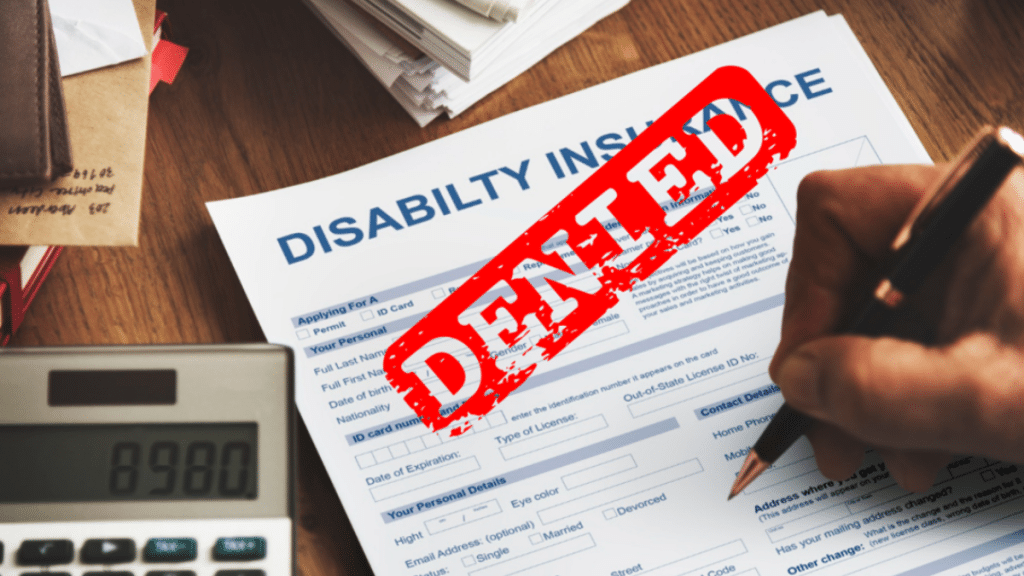Facing a denial on your Social Security Disability Insurance (SSDI) claim can feel like hitting a brick wall. You’ve already gone through so much, gathering medical records, filling out endless paperwork, and waiting for an answer, only to be told “no.” It’s frustrating, stressful, and downright confusing.
But here’s the good news: a denial isn’t the end of the road. It’s just a bump in the journey. Understanding what steps to take next can make all the difference in turning that “no” into a “yes.”
In situations like these, it’s incredibly helpful to have the right team by your side. Firms like Eric Buchanan & Associates specialize in helping people navigate SSDI appeals. They know the system inside and out, and they can be the guiding hand you need when everything feels overwhelming.
Now, let’s break it all down and talk about what you should do if your SSDI claim has been denied.
First Things First: Don’t Panic
It’s completely normal to feel upset or even defeated when you get a denial letter. But try not to panic. Many SSDI claims are denied the first time around. In fact, it’s more common than you might think. A lot of claims are turned down simply because of missing paperwork, minor errors, or not enough medical evidence.
Take a deep breath and remind yourself that you have options. The key is to act quickly because there are deadlines for appealing a denial. You usually have 60 days from the date you receive your denial notice to file an appeal.
Understand Why Your Claim was Denied
Before you can move forward, it’s important to understand why your claim was denied. The Social Security Administration (SSA) will send you a letter explaining their decision. This letter will outline the specific reasons for the denial, whether it’s due to lack of medical evidence, not meeting their definition of disability, or other technical issues.
Carefully read through the letter and take notes. Knowing exactly what went wrong will help you or your representative build a stronger case for your appeal.
Gather More Medical Evidence
One of the most common reasons claims are denied is because the medical evidence doesn’t fully support the disability claim. Maybe your records weren’t detailed enough or maybe there were gaps in your treatment history.
Now’s the time to strengthen your case. Make sure you gather updated medical records, get letters from your doctors explaining your condition in detail, and, if possible, seek opinions from specialists. The more solid, clear evidence you have, the better your chances during the appeal process.
File a Request for Reconsideration
After understanding the denial and collecting additional evidence, the next step is to file a “Request for Reconsideration.” This is the first level of appeal. It basically means you’re asking the SSA to take another look at your case with fresh eyes.
During this stage, another reviewer who wasn’t involved in the initial decision will evaluate your claim. This is your opportunity to fix any mistakes, submit new evidence, and show why you qualify for benefits.
Be Prepared for a Hearing
If your request for reconsideration is denied (and many are), don’t lose hope. The next step is to request a hearing before an Administrative Law Judge (ALJ). This is your best chance to personally explain your situation.
At the hearing, you’ll have the opportunity to present your case, bring witnesses (like doctors or vocational experts), and answer the judge’s questions. Having a lawyer or advocate at this stage can be a game-changer. They know what the judges are looking for and can help you present your case in the strongest possible way.
Stay Persistent and Patient
The SSDI appeals process can be long and, at times, frustrating. It might feel like you’re jumping through endless hoops, but staying persistent is crucial. Many people who stick with the process end up winning their benefits after an appeal.
Keep track of deadlines, stay organized, and don’t hesitate to ask for help when you need it. Having a knowledgeable team on your side can make the journey a lot less stressful.
Final Thoughts
Getting a denial on your SSDI claim is tough, but it’s not the end of your story. It’s just the beginning of the next chapter. By understanding the reasons for denial, gathering stronger evidence, filing appeals, and staying patient, you can turn things around.
Remember, you’re not alone in this. Help is out there, and with the right approach, you have every chance to get the benefits you deserve. Stay strong, keep pushing forward, and don’t give up on your fight.
